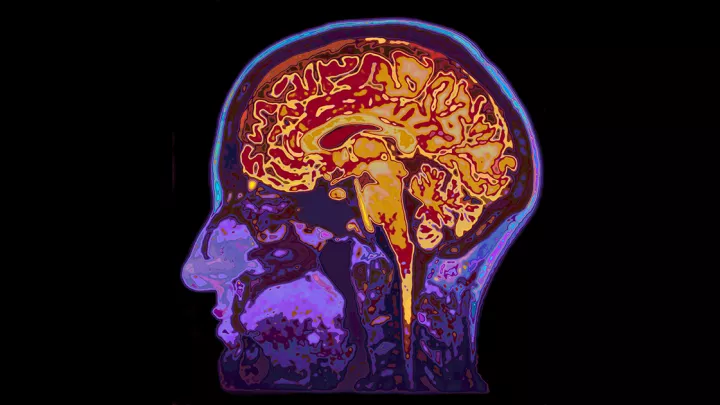6 tips to maintain your brain health

As we age, most of us will find that our brain, just like the rest of our body, loses some of its mental agility.
"The speed at which you process information, as well as your recall ability, begins to decline starting at about age 40," says Daniel Murman, MD, Nebraska Medicine neurologist.
"The brain is much like other parts of your body, if you don't use it, you will lose it."
Participating in a variety of activities, which activates different neuronal pathways in the brain, will help improve the performance of your brain as you age. Every time you repeat an activity, you strengthen brain cells and reinforce the connections between them.
In fact, "recent studies show that regular participation in healthy lifestyle activities can help delay the onset of dementia by up to five years and may slow the speed that Alzheimer's disease symptoms progress," Dr. Murman says. Dementia refers to declines in memory and thinking that are severe enough to interfere with everyday activities such as driving, doing finances, shopping or cooking.
By practicing these healthy lifestyle choices, you can promote brain health as you age.
1. Mental activity
Staying active mentally not only keeps nerve cell connections strong but may create new nerve cells. Practice things like reading, playing cards, puzzles, computer-based games, writing, researching or playing an instrument. "Different activities activate different areas of the brain," says Dr. Murman. "Do things you enjoy. Even things like completing chores or cooking that activate the brain are good brain-building activities." On the other end of the spectrum, activities like watching TV, unless you are actively engaged, are not going to help strengthen the brain.
2. Physical exercise
Physical exercise promotes good blood flow to the brain and promotes brain health "Just like exercise activates different muscles, it also reinforces different brain circuits," explains Dr. Murman. "Try to reinforce activities that you will use in everyday life to help you with activities of daily living."
3. Healthy diet
A diet high in fruits and vegetables, which contain antioxidants, may provide protective benefits that promote brain health, whereas, a diet high in saturated fats and cholesterol, may do the opposite.
Researchers have found that a combination of the Mediterranean and Dietary Approaches to Stop Hypertension (DASH) diets, called the Mediterranean-DASH Intervention for Neurodegenerative Delay (MIND) diet, has the largest impact on building brain health. The MIND diet promotes eating 10 brain-healthy foods that include leafy green vegetables, other vegetables, berries, beans and legumes, nuts, whole grains, fish, poultry, olive oil and wine in moderation. The diet recommends avoiding five foods that have shown to be toxic to the brain. These include red meats, fried or fast foods, pastries or sweets, butter and cheese.
4. Socially engaged and positive emotional health
Staying socially active may be good for the brain by reducing stress levels and maintaining healthy connections among brain cells. Maintain an active social life with friends and family and participate in a variety of social activities like sports, dancing, musical events and other cultural activities.
5. Sleep
Sleep is very restorative to the brain and body. "If the benefits of sleep were sold as a drug, we'd all be taking it," says Dr. Murman.
When you sleep, the brain stores new information and gets rid of toxic waste. Nerve cells communicate and reorganize, which supports healthy brain function. The body repairs cells, restores energy and releases molecules like hormones and proteins.
Unfortunately, the quality of your sleep often declines with age. If you find yourself very tired during the day and never feel like you are getting a good night's sleep, you should be evaluated for a treatable sleep disorder, such as sleep apnea, recommends Dr. Murman. Sleep apnea can be detrimental to your brain health and may increase your risk of Alzheimer's among other health problems like stroke and heart disease.
6. Avoid toxins to the brain
There are also things that can be detrimental to brain health such as excessive alcohol or drug use. Frequent and excessive use can damage memory circuits and accelerate the decline in mental aging, says Dr. Murman. Heart disease risk factors such as high blood pressure, high cholesterol, smoking, diabetes and obesity are also associated with a higher prevalence of dementia.
"Dementia is the sixth leading cause of death in the United States and a disease that people over 50 fear the most," says Dr. Murman. "While medications have failed to slow the progression of conditions like Alzheimer's disease, there is growing evidence that you can significantly reduce your risk by building your brain health."
Schedule an evaluation with one of our neurologists at 800.922.0000.







